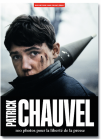Media enjoy an effective legal protective framework as well as a high level of public trust, but their independence, already weakened by the market’s small size, faces threats from the fishing industry, the country’s major economic sector.
Media landscape
Heavy concentration of ownership marks the small country’s small media market. Though this concentration has diminished slightly in recent years, the media sector remains dominated by four big companies. The island nation has two big daily papers, with Morgunblaðið the oldest, and the media landscape also includes weeklies and biweeklies, as well as television channels and radio stations, including state-owned RUV. Recent years have seen the birth of some Influential online sites.
Political context
Big national media generally enjoy independence, protected by law as well as media organisations’ own standards. This extends to RUV, whose board of directors is appointed by Parliament. However, journalists are more vulnerable to influence from local authorities and companies. In recent years, Parliament has served as a stage for virulent criticism of journalists. Many reporters see these comments as a form of political pressure.
Legal framework
The legal framework provides journalists and media organisations solid guarantees of freedom of the press, access to government information, and independence from government. Rounding out the picture is an effective self-regulatory system based on a national code of ethics to which most media subscribe. Defamation remains defined as a crime, which can discourage journalistic investigation.
Economic context
Investigative journalism has experienced a period of dynamism after in-depth reporting on major corruption cases. But advertising revenue, limited in any case by the market’s small size, has generally weakened in the face of the Covid-19 pandemic. To compensate, the government has provided unprecedented financial support to the media, though some fear that the effort will favour big companies to the detriment of media pluralism.
Sociocultural context
Icelandic media enjoy considerable public trust, especially because citizens rely on them for accurate news on the pandemic, but journalistic independence is threatened by business interests including the fishing industry which plays a vital role in the country’s economy. Large companies are media owners, which pose questions about conflicts of interest. In addition, since 2020, journalists have been investigating the Fishrot Files scandal, involving suspected corruption and tax evasion in Namibia by the biggest fishing company – provoking a company smear campaign against the journalists.
Safety
Reporters are relatively safe from physical violence, but women journalists are occasionally subject to telephoned threats, and commentary on social networks.
